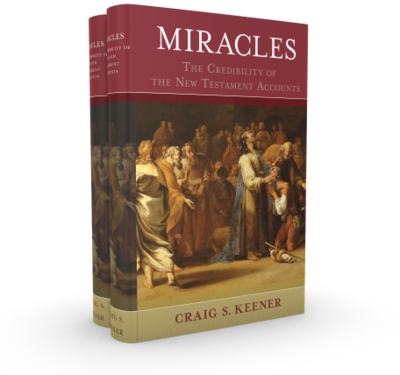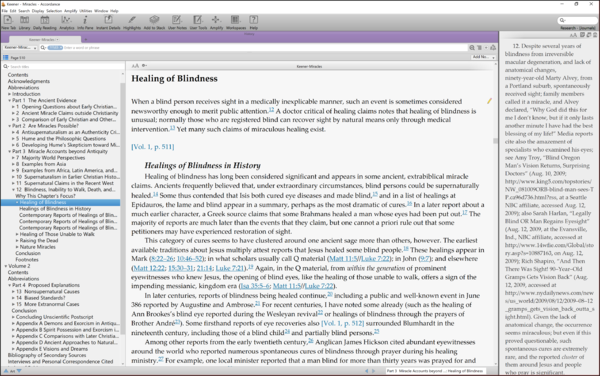
I didn’t know the name David Hume at the time, but years later I would learn that this 18th century philosopher defined a miracle as a violation of natural law. Grounded in the empirical ideas of his age (and in many ways, ours), Hume did not believe in miracles because they would, by very definition, contradict universal experience. After studying Hume years later, I remembered the encounter with my classmate’s father and realized he was channeling Hume in his challenge to me.
Even as an 18-year old, I felt the argument presented to me by my friend’s father established rules about God (whom arguably, he didn’t believe in to begin with) which were a bit external to the nature of the very definition of an all-powerful Being. Yes, there are “natural laws” in place that God established in the creation of the cosmos, but if he created the natural system in which we live, he can just as easily bypass this system as he sees fit. Nevertheless, skeptics often stump those who believe in miracles when they ask for documented evidence for them.
Almost all modern Western skepticism of the supernatural can be traced back to the development of empirical ideas (that is, reality is only what we can directly and uniformly experience with our senses) of the Enlightenment era. And if the idea of miracles are readily dismissed, we can point back to the arguments and influence of David Hume.
Although most believers in the God of the Bible would believe in the historicity and possibility of the miraculous at some inherent level, Hume’s influence remains with us whether his name and precise arguments are known or not. Thus, Craig S. Keener, professor of New Testament at Asbury Theological Seminary, decided it was time to counter Hume’s arguments in perhaps the most thorough and decisive means attempted in modern times. Today, we are pleased to release Keener’s monumental two-volume work, Miracles: The Credibility of the New Testament Accounts for the Accordance Bible Software Library.
I used the word thorough in the paragraph above because that aptly describes Keener’s Miracles. In print, the two volumes consist of over 1200 pages. Keener comes at the subject from every angle. In part 1, Keener examines ancient evidence of miracle accounts, and not just those from the Judeo-Christian tradition. In part 2, he directly addresses the philosophical presuppositions suggested by Hume. In part 3, Keener examines account after account of modern miraculous occurrences (here is that documented evidence that skeptics request). In part 4, Keener explores various proposed explanations for miracles. And then a series of appendices, which could serve as an independent volume by themselves, serve to round out several subjects not addressed in the earlier content.
Click tap the image above for a larger view of Craig Keener’s Miracles in Accordance 12.
Accordance users who own the most recent Theological Journal Library will want to read Rob Plummer’s detailed review of Keener’s Miracles. Plummer summarizes Keener’s main arguments in this way:
The two-part thesis of Miracles is straightforward: (1) Many people, both ancient and modern, give credible eyewitness testimony that they, or people they know, have experienced miracles; and (2) therefore, when judging the historicity of ancient works that report miracles, scholars should not, at the outset, eliminate the possibility that genuine supernatural phenomena were observed.
I can’t overemphasize how important Craig Keener’s Miracles is to its subject and the skepticism of our age in general. Add it to your personal Accordance Library and work your way through Keener’s evidence and arguments. Then don’t be surprised how often you recognize David Hume’s still persistent influence; yet now, you will have the information needed for serious engagement and discussion.
Miracles (Keener)
Regular Price $69.90


